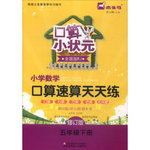题目内容
---He was nearly killed by a car once.
---Oh, when was _____ exactly?
---It was in 2007 _____ he was riding a bike on the drive-way.
| A.this; that | B.that; when | C.that; that | D.this; when |
B
解析

练习册系列答案
 口算小状元口算速算天天练系列答案
口算小状元口算速算天天练系列答案
相关题目
题目内容
---He was nearly killed by a car once.
---Oh, when was _____ exactly?
---It was in 2007 _____ he was riding a bike on the drive-way.
| A.this; that | B.that; when | C.that; that | D.this; when |
B
解析

 口算小状元口算速算天天练系列答案
口算小状元口算速算天天练系列答案